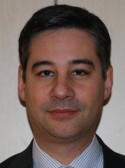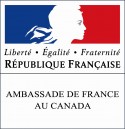September 27th, 2012 | 5:30pm-7:00pm
Senate Room, 608 Robertson Hall, Carleton University
* Light reception provided from 5:00pm -5:30pm, Alumni Board Room, 617 Robertson Hall
Registration is now full, please email ces@carleton.ca to be placed on a waitlist
The Arctic presents immense opportunities for economic development and exploitation of previously inaccessible nature resources; at the same time it has became the subject of power projections from a variety of actors from local to international levels. Arctic development also poses critical challenges to the environment, particularly in the face of climate change. Development of new resources in the Arctic presents both dangers and possibilities, to private industry, governments, and to local communities. These factors affect both Arctic countries like Canada and the Scandinavian countries, as well as adjacent regions such as other member states of the European Union.
This event explores the appropriate roles for various public and private actors in decision about economic development of this important region, with a particular emphasis on the perspectives from Canada and the European Union. Speakers will address what types of governance arrangements will best assure that development is sustainable, ecologically responsible, and sensitive to the interests of key stakeholders.
Panelists:
Tony Penikett spent 25 years in public life, included: two years in at the House of Commons as Chief of Staff to federal New Democratic Party Leader Ed Broadbent; five terms in the Yukon Legislative Assembly; and two terms as Premier of Canada’s Yukon Territory. His government negotiated final agreement for First Nation land claims in the territory and passed pioneering education, health, language, as well as leading Yukon 2000, a much-admired bottom-up economic planning process. Tony Penikett is also an Adjunct Professor at Simon Fraser University’s Master of Public Policy program and at the Queens University School of Policy Studies.

Joël Plouffe is a research fellow at the Raoul Dandurand Chair of Strategic and Diplomatic Studies at the University of Québec at Montréal (UQAM). He is an active member of the Northern Research Forum and Managing Editor of the upcoming Arctic Yearbook 2012. Joël’s research on Arctic security and geopolitics has brought him to many different parts of the Arctic in North America, Northern Europe, and Russia. He is a U.S. State Department International Visitor Leadership Program Alumni and will be leading a Task Force on Arctic Security at the University of Washington in 2013. Joël was recently embedded with the Canadian Forces during Operation Nanook in the Canadian Arctic and is pursuing his Ph.D. on U.S. foreign policy making and the Arctic in the Department of political science at UQAM.

Stephan Schott is a professor in the School of Public Policy and Administration at Carleton University. His areas of expertise include natural resource management, resource and sustainable development in the Arctic, and energy policy. He has a PhD in Economics in Resource and Environmental Economics from the University of Guelph.

Alexandre Vulic is currently the Minister Counselor/Deputy Head of Mission at the Embassy of France in Ottawa. In recent years he has been a diplomatic advisor to the French Minister for Foreign Trade and the Minister for European Affairs. He has also previously served in the French Mission to the North Atlantic Council.
Moderator:
Anja Jeffrey is the Director of the Centre for the North an initiative of the Conference Board of Canada and has for the past nine years been involved in circumpolar issues. Until 2009, she was a career diplomat with the Danish Foreign Service, and has held postings in the United States and in Canada at the Danish Embassy in Ottawa as the Deputy Ambassador. From 2007-2009, she was the Arctic Resources Manager at the Ministry of Foreign Affairs in Copenhagen travelling in all circumpolar countries and connecting with governments, communities, businesses and NGOs. Anja also helped organize and negotiate the 2008 Ilulissat Conference in Greenland on the Arctic Ocean.
The Centre for European Studies is grateful for support from The Canadian International Council, the European Commission, the Conference Board of Canada, the Embassy of France and Carleton University
For more information contact ces@carleton.ca or 613 520-2600 ext. 1087




